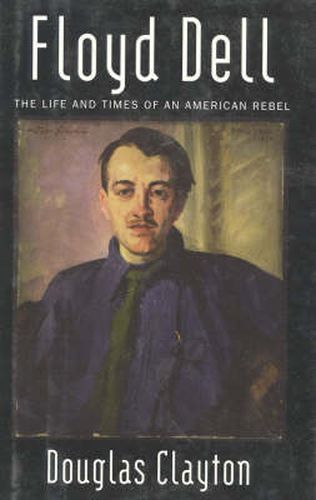Readings Newsletter
Become a Readings Member to make your shopping experience even easier.
Sign in or sign up for free!
You’re not far away from qualifying for FREE standard shipping within Australia
You’ve qualified for FREE standard shipping within Australia
The cart is loading…






Among the American avant-garde of the early twentieth century, Floyd Dell played a distinctive role. A boy from the Midwest who rose to influence in the Chicago Literary Renaissance and in the heyday of Greenwich Village radicalism, he became a celebrated novelist, critic, editor (of The Masses), poet, and playwright. Dell was also a notorious bohemian, proponent of free love, and champion of feminism, progressive education, socialism, and Freudianism. His love affairs earned him almost as much notoriety as his writings. His friends and colleagues included many of the great figures of the era: radical journalists John Reed and Max Eastman; the Christian Socialist Dorothy Day; novelists Theodore Dreiser, Upton Sinclair, and Sherwood Anderson; and poet Edna St. Vincent Millay. Yet no figure was more colorful and brilliant than Dell himself. Better than anyone, he epitomized the high spirits and towering ambitions of American culture in the early decades of the century. Douglas Clayton’s biography of Dell, the first full-length life, captures the remarkable accomplishments and contradictions of a man who was both central to radical culture and profoundly skeptical of it. An early escapee from Marxism, his career never followed the familiar left-to-right course. But Dell struggled all his life with the relationship between politics and art, which makes his life so arresting and relevant today. With 8 pages of photographs.
$9.00 standard shipping within Australia
FREE standard shipping within Australia for orders over $100.00
Express & International shipping calculated at checkout
Among the American avant-garde of the early twentieth century, Floyd Dell played a distinctive role. A boy from the Midwest who rose to influence in the Chicago Literary Renaissance and in the heyday of Greenwich Village radicalism, he became a celebrated novelist, critic, editor (of The Masses), poet, and playwright. Dell was also a notorious bohemian, proponent of free love, and champion of feminism, progressive education, socialism, and Freudianism. His love affairs earned him almost as much notoriety as his writings. His friends and colleagues included many of the great figures of the era: radical journalists John Reed and Max Eastman; the Christian Socialist Dorothy Day; novelists Theodore Dreiser, Upton Sinclair, and Sherwood Anderson; and poet Edna St. Vincent Millay. Yet no figure was more colorful and brilliant than Dell himself. Better than anyone, he epitomized the high spirits and towering ambitions of American culture in the early decades of the century. Douglas Clayton’s biography of Dell, the first full-length life, captures the remarkable accomplishments and contradictions of a man who was both central to radical culture and profoundly skeptical of it. An early escapee from Marxism, his career never followed the familiar left-to-right course. But Dell struggled all his life with the relationship between politics and art, which makes his life so arresting and relevant today. With 8 pages of photographs.